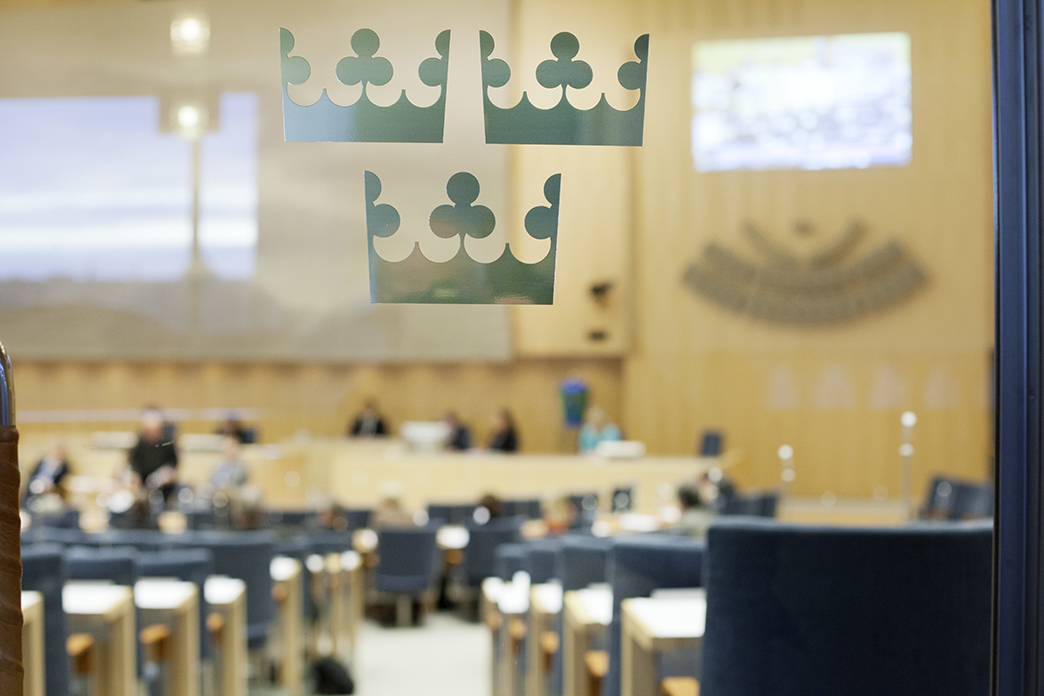The Swedish prime minister loses vote
On September 25, just after 9.30 a.m. Swedish time a majority in parliament stated they did not trust Stefan Lofven as Sweden's prime minister.
-
 Sweden's parliament, Riksdagen. The Riksdag building is located on Helgeandsholmen in central Stockholm and was inaugurated in 1905. The 349 members meet in what is called the Chamber. Photo: Melker Dahlstrand/imagebank Sweden
Sweden's parliament, Riksdagen. The Riksdag building is located on Helgeandsholmen in central Stockholm and was inaugurated in 1905. The 349 members meet in what is called the Chamber. Photo: Melker Dahlstrand/imagebank Sweden -
-
The Swedish prime minister loses vote
As expected, Prime Minister Stefan Löfven fell in the historic prime ministerial confidence vote in parliament on Tuesday, Sept. 25. It was just after 9.30 a.m. when a majority in parliament stated they did not have confidence in Stefan Löfven as Sweden's prime minister. The four Alliance parties and the Sweden Democrats voted no. The Swedish election on September 9 offered no clear winner among the blocs - The Swedish election 2018 - which opened for the mandatory confidence vote after the Swedish parliament, Riksdagen, opened. -
Never before in Swedish history has the Riksdag dropped a prime minister in a vote of confidence in the Riksdag. Stefan Löfven has been prime minister since 2014. He's been able to govern in spite of not holding a majority in parliament because the alliance parties so far refrained from taking the Sweden Democrats' support to trap him. The fact that the Alliance now joins SD in an effort to replace the red-green government is unprecedented. Recent commentary by the Alliance has confirmed that the group will not seek support by the Sweden Democrats but nevertheless plans to push forward the Moderate party leader Kristersson as most likely Prime Minister candidate.
-
What happens now?
The newly elected Speaker of Parliament, Andreas Norlén, leads the probations to install a new prime minister and government. It looks as if the new government will be in a form that Sweden hasn't seen in a long time. The positions are still locked among the blocs, but a government consisting of the Moderates and the Christian Democrats collaborating on the budget with the Center Party and Liberals, at the same time tolerated by SD, is one possible outcome. Another scenario could be that Stefan Löfven actually returns as prime minister, but he would then have to win over C and L. The former government remains in place until a new government has been formed and installed. -
The new speaker of parliament, Andreas Norlén, who was elected on Sept. 25, has to find and select a new prime minister he believes can form the new government, a government that's likely to also be able to get its first budget approved in parliament.
Once the speaker presents a candidate, a vote will be held in the parliament within four days. He can submit four ministerial proposals and if all proposals are voted down, an extra election shall be held within three months.
The new budget is supposed to be submitted by October 9 according to the regular schedule; for a new government the deadline will be extended to three weeks after accession, but no later than November 15. In the event of a change of power, the current ministers will remain in a transitional government until the new government is installed. It will also be the transitional government that submits the budget, unless the successors are in place before November 15.
The Riksdag votes for the government budget in early December. -
-
